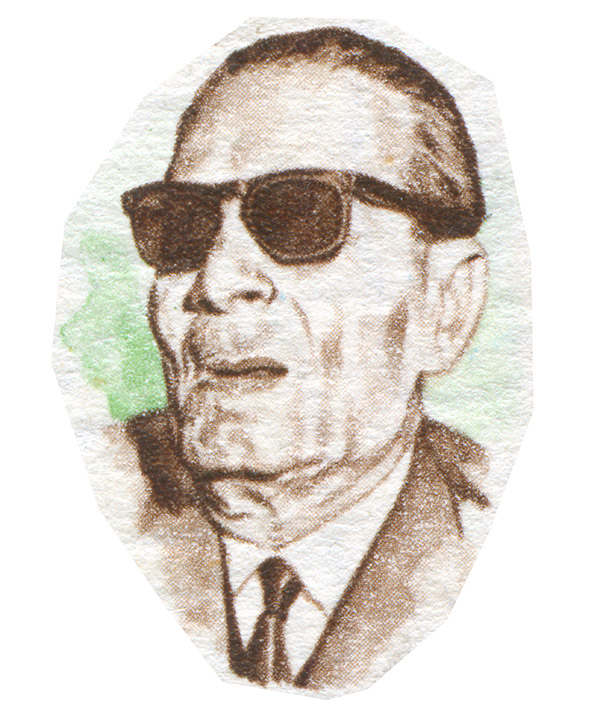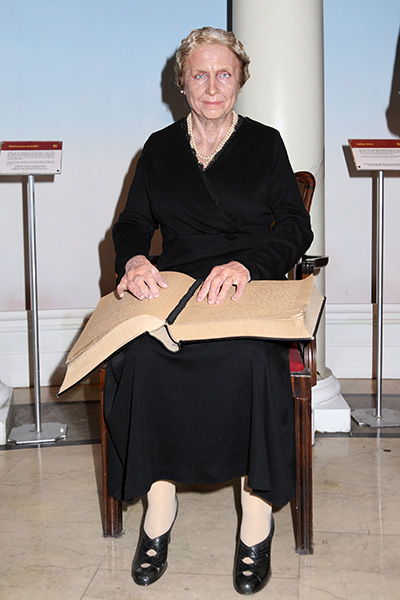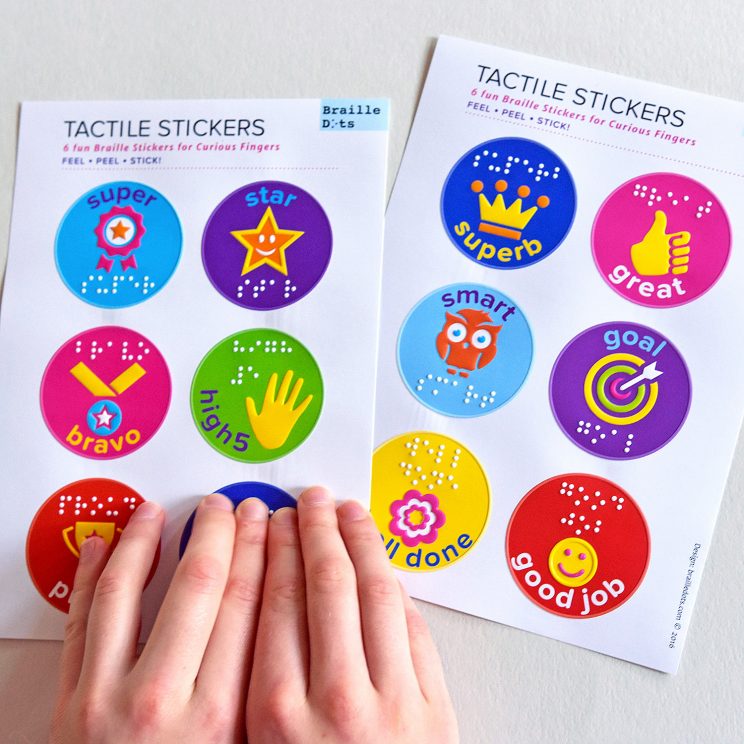Braille, a window to the world for the blind
Have you ever imagined what our life would be like without reading and writing? What a great grace given by God and mentioned in the holy books. Humans would not have inhabited the earth or established a civilization without that.
This is the same for the blind, braille has become one of the most important means by which the blind can learn about the surrounding world, it would not be an exaggeration if it was said that the blind need more reading and writing than others because they are more in need of knowing the world around them and obtaining independence and privacy. If you experience the world with your eyes, then the blind can experience it once with their ears and fingertips. Using this method, the blind can read, write, compose, and contribute to the progress of mankind culturally, scientifically, and academically.

If Braille is important for the blind, it is even more important for the deaf-blind people who cannot benefit from any audio content, they only have Braille as an irreplaceable option.

Braille in the age of modern technology
Considering the development of digital technology to access content audibly, such as the screen-reading programs on all computer and smartphone systems, some argue that braille has now become a less important tool for the blind. However, this is not true. More than 150 million blind people around the world still use braille for many reasons. Perhaps the biggest aspect of the importance of braille lies in the literacy of the blind person, in this way they can learn the spelling of words and punctuation, and visualize how the text is formatted on the page.
Audiobooks and other audio media have provided a valuable additional source of learning. Despite that listening is not the same as reading, studies have shown that students who master braille have more reading and writing skills than their peers who do not master braille. Furthermore, braille’s importance includes the career aspect. A survey conducted by Louisiana Tech University showed that blind people who can read braille have greater chances of employment.
It is worth noting that braille has also achieved its share of technological development, as technology has facilitated access to braille and become portable in small-sized devices, thanks to electronic braille notebooks and programs that convert plain text into braille, and braille displays that are used with computers.

Braille Advantages
As noted earlier, braille is the only method by which a person who does not have access to printed material can read and write, some of the aspects and areas in which the blind use braille are:
- Reading the Qur’an: Using only braille, the blind can recite the Holy Quran whenever they want. Many institutions provide copies of the Holy Qur’an in braille.

-
-
-
- Careful reading: braille allows the blind to read and examine books and courses in a way that gives more focus on content than listening to audio.
- Learning new languages: One of the areas in which blind people benefit most from the braille method is when they want to learn any new language, especially when it comes to learning the alphabets, words spelling, and sentence structures, this is also useful for training in reading in that language and repeating what is read.
- Taking notes during meetings or lectures: Braille, especially electronic diaries, allows the blind to take notes while in a lecture or meeting, without disturbing others and without distracting themself by listening to the screen reader program.
- Spell Check: In braille only, the blind can check the texts for spelling and detect writing errors, such as extra spaces and errors related to punctuation, which cannot be achieved by listening to the text. Through this feature, the blind can work in jobs that depend on careful examination of written texts, such as proofreading, translation, paraphrasing content, and programming.
- Providing presentations and lectures: Braille allows the blind to speak to the audience and present lectures, presentations, or explanations in braille to the audience.
- Working with media and audio reading: Braille allows the blind to work in media such as radio and television and allows them to read news and present programs. Braille also helps the blind to work in the Voiceover area.
- Work in jobs that require textual content follow-up: Such as working in customer service centers and company call centers, where the blind can use braille to read what needs to be explained to the customer.
- Perform mathematical processes, especially complex ones.
- Reading the signs displayed in braille: In some countries, the indicative signs are displayed in braille on an equal basis for the blind compared to their sighted peers.
- Learn about food menus in restaurants that provide them in braille: The blind can identify the menu without the need for someone else to read it for them.
- Enjoying games: Blind people can enjoy many types of games by writing on them in braille alongside regular writing, and then they can play these games with each other or with the sighted as well. There is no doubt that this contributes to the greater integration of the blind in society. It is worth noting that there are many companies and websites that sell such games to the blind.

-
- Knowing medications: Many pharmaceutical companies today print the name of the drug on the package in braille, and thus, the blind can identify the type of medicine directly by reading what is written on the package.
- Labels: Some blind people write in braille on stickers and then put these stickers on the tools or things they always use to easily distinguish them from others and identify them later.
-

- Writing, memorizing, and reviewing musical notes.
Conclusion
Reading and writing in braille have opened the door for the blind towards literacy, intellectual freedom, equal opportunities, and greater privacy and independence. We should not direct children who can read not to learn the alphabet just because they can watch the video instead, as this will undoubtedly be considered a serious deficiency in the educational process. So why do we allow ourselves to use different standards with blind people that prevent them from having the true pleasure and feeling of reading? Braille materials are no longer as big and expensive as they used to be, they have been involved in technology too. A single book, which needed several, large volumes to be printed in Braille, can now be easily carried by the blind person in their electronic diary along with dozens of other books.
It is our imperative duty – institutions and individuals – to work hard to spread knowledge among the blind, and to strive in various ways to eradicate the illiteracy of many people who cannot read and write using braille, by facilitating access to it and overcoming all obstacles that may stand in the way of those who wish to learn it.
